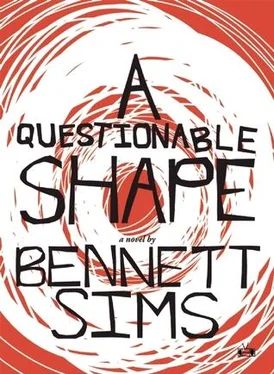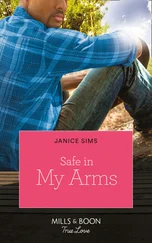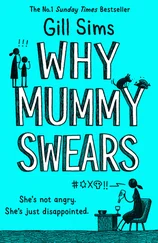I feel a newfound respect for him swell inside me. What strength it must have taken for him to be finished! Seeing me staring, he makes a quizzical expression. Then he reaches for the binoculars. ‘You want to take a look?’ he asks, holding them out. ‘Sure,’ I say, and cross the room to accept them.
Back at the window I face the Freedom Fuel, raising the binoculars and bracing myself for whatever it is I might see: a rotting face, two white eyes. But by chance what the lenses alight on is the besieged cruiser, its passenger side, and all I have a view of is the backs of two infected as they beat their hands against the window. Their shirts are all I see. A black polo on the left, a blue work shirt on the right. I try panning the binoculars between their shoulders, to clear a sightline through the window, and eventually I get a bead on the officer inside. He’s looking out the windshield, head in profile. He can’t be much older than we are: a scrawny kid with a blond buzz cut and a strong square jaw like Matt’s, gripping the steering wheel and looking bored. He stares stoically ahead, presumably at the three infected pounding on the hood, and I wonder whether the expression on his face (phlegmatic, contemptuous) is what the scuba mask conceals in the shark cage: they want nothing more than to destroy him, but they can’t get at him. He can go on sitting there, baiting them, until the van arrives to detain them. Like Matt, this officer is probably fantasizing about putting a bullet in the head of every infected surrounding his car. And perhaps, in the very near future, he’ll be authorized to. If quarantines nationwide keep overflowing and no medical solutions are forthcoming, the government might decide to unknot the Gordian hordes by sanctioning mass extermination. Of course, the executions would have to be handled humanely, conducted by whitecoats with syringes. But this kid might still get his chance to take a few potshots. I imagine him and a partner parked in the bayou at night, hunting for strays, one swinging the beam of a roof-mounted searchlight, while the other hangs out of the passenger-side window with a scoped hunting rifle (just like the bored sniper teams who are occasionally dispatched to neutralize nutria rats, prowling the swamps late at night in a wildlife-control jeep, and searching the bright plate of their spotlight for any hollow eyeshine [e.g., in bushes or in lakewater, where two jacklit tapeta, flaring out momentarily, will yield a brief Geminian glimmer]). I imagine the kid and his partner searching the darkness for those milky-green cataracts, and taking a swig of bourbon for every pair that they extinguish. A pull of Bulleit for every bullet they put in the head of an infected.
Stepping back from the window, I manage to get a better angle on the righthand infected. His upper torso is completely visible now, and I can see that his blue work shirt is ratty, scuffed with mud and ripped in places, as if he’s been wandering in a swamp himself. No bloodstains, though. The back of his head looks human: a shaggy mane of gray hair, jagging unkemptly to his shoulders. His shoulders slope massively into his torso, which is barrel-shaped and obese. Clearly this infected used to be — is — a tower of a man, huge in height and bulk. He’s still leaning against the passenger side of the car, pounding on the window, so it’s difficult to tell how tall he really is. But tall, at any rate. Tall enough to carry his excess weight. From his silver head of hair and (literally) blue collar, I try to make inferences about his age, his station. From his shoulders I make inferences about his physical dimensions. What I come up with is that the infected looks about sixty, about six feet, about three hundred pounds. Working class. When I look more closely at his shirt, I notice that it’s plaid. The same generic pattern as the scrap in Highland Road Park.
No. That is insane. That is exactly the kind of thought you can’t let yourself think, I tell myself. For one thing, you don’t even know that he was wearing that plaid shirt when he reanimated. And secondly, any infected could be wearing a plaid shirt. You said so yourself. You’re making the same mistake Mazoch made, yesterday at the barges. Making a false positive. Treating that torn blue plaid like some boar’s tusk scar. No, that infected isn’t Mr. Mazoch. It couldn’t be.
And yet, on the other hand, it could be. His height, his shape, why not? All that would be required is that his undead body tried returning here today, either for the first time in a month or for the third time this week. Before he could reach his house, he would have been diverted into the Freedom Fuel parking lot, either attracted there himself, or corralled by the police officers. And that could be him pounding on the window of the cruiser, trying to get inside, reaching for the blond-haired square-jawed boy whom he could very well have mistaken for Matt.
I center the infected’s head in my binoculars, magnifying its mop of unruly tousles. That way, when it turns around to the house ( its house?), I’ll have its face in frame. Absurdly, I feel this need to see its face, as if everything would be settled then. As if I’d be able to recognize Mr. Mazoch, whose photo I’ve still never seen, or discern some family resemblance.
But the infected does not turn around. It keeps beating its gray fist against the windowpane. It certainly does look as if it has had a lot of practice punching windowpanes. Indefatigably it beats, showing no sign of stopping, and I know now that nothing is going to catch its attention from behind. In the shatterproof glass, it has found the perfect opponent. Pounding away, it is free to indulge its breaching instinct indefinitely. Nothing will distract it from this task, not until it’s too late: not until the LCDC van arrives to detain it. If I want to determine whether it’s Mr. Mazoch, I’ll have to call Matt over to the window. I’ll have to tell him, casually, that some new infected have arrived, and hand him the binoculars to check.
Except I can’t just call Matt to the window. Now? Now that he is finally ‘finished’? Calling him to the window after he has finally let his father go, and given up the search for good, would be to risk relapse in the worst way. If I made him lock his binoculars on the back of this so-called ‘Mr. Mazoch’ (but in fact just another false positive, some evilly conceived Mr. Mazoch doppelganger), Matt would be ruined. He would again be filled with wishful thinking about his father: that the man was waiting for him somewhere, that he still existed to be found. Even when the infected did turn around, and Matt confirmed for himself that it was just another false positive, the damage would already be done. The search’s embers would be rekindled in Matt: if not this infected, he would tell himself, in this parking lot, then some other infected, somewhere else. The trick was just not to give up.
And even that reaction would be a best-case scenario. Because Matt might not bother waiting for it to turn around. Instead of seeing ‘his father’ out there, he might simply see the monster he had condemned so mercilessly last night: a ‘killing machine’ and ‘contagious cannibal,’ trying to ‘solve the problem’ of the cop cruiser, beating against the window so that it could get at that officer (that Matt doppelganger) inside. So that it could eat what it thought was its son alive. The moment Matt saw that, he might be crazed with the need to kill it. I’d have to hold him back by main strength, just to keep him from sprinting with his bat to the parking lot, where he’d be sure to get himself arrested, if not shot, if not bitten. Yes. That could happen, too, if I called Matt over. Then I would have all that blood and horror and heartbreak on my hands.
I think back to the day when Rachel and I visited her father’s grave. If I had actually heard something suspicious then (a far rustle underground, a scratching sound), what would I have done? Would I have told her, leaving her no option — psychologically — but to dig down through six feet of earth and splinter her dad’s casket? Or would I have let it go, dismissing it as the nothing that it probably was? Sparing her that misery.
Читать дальше












